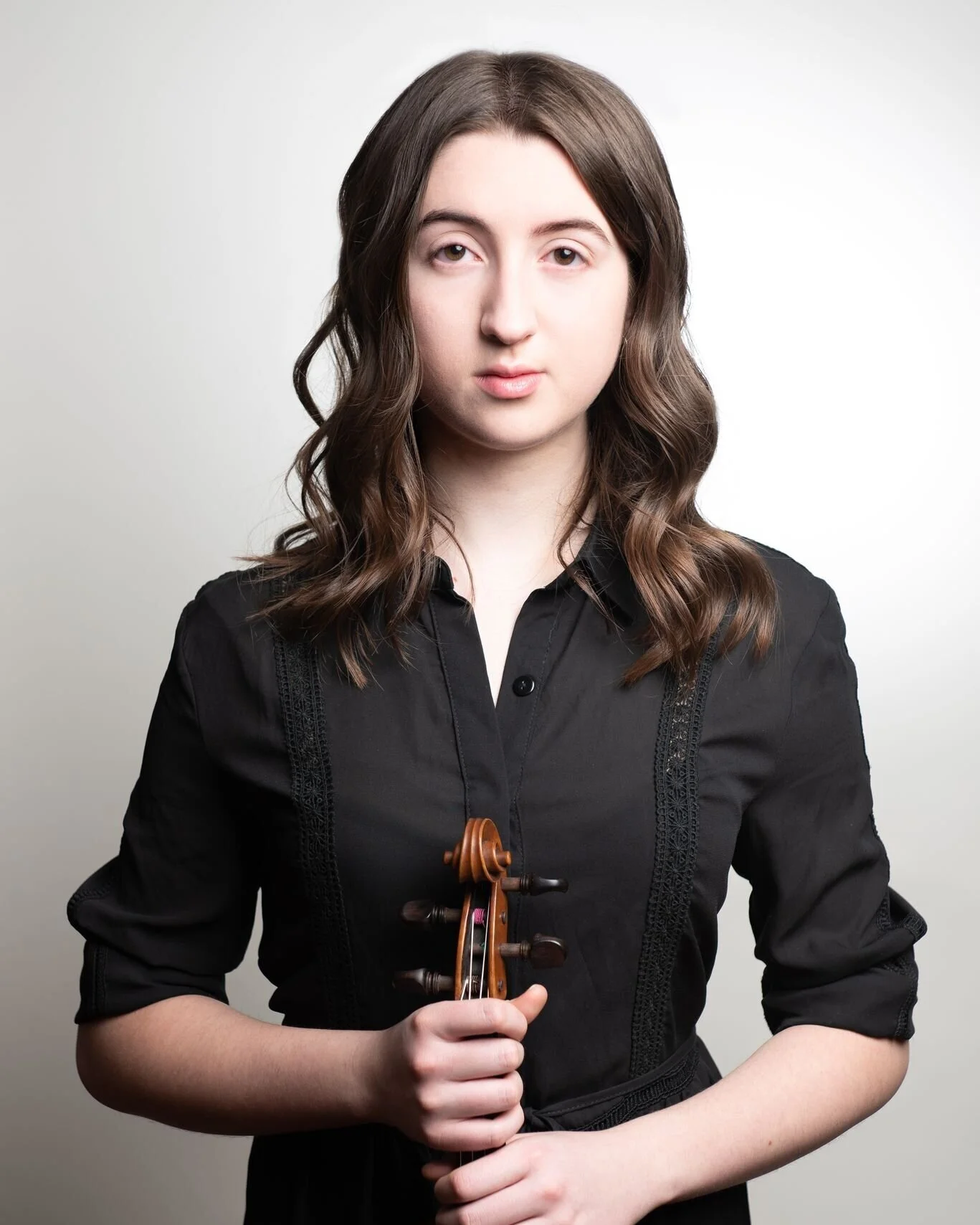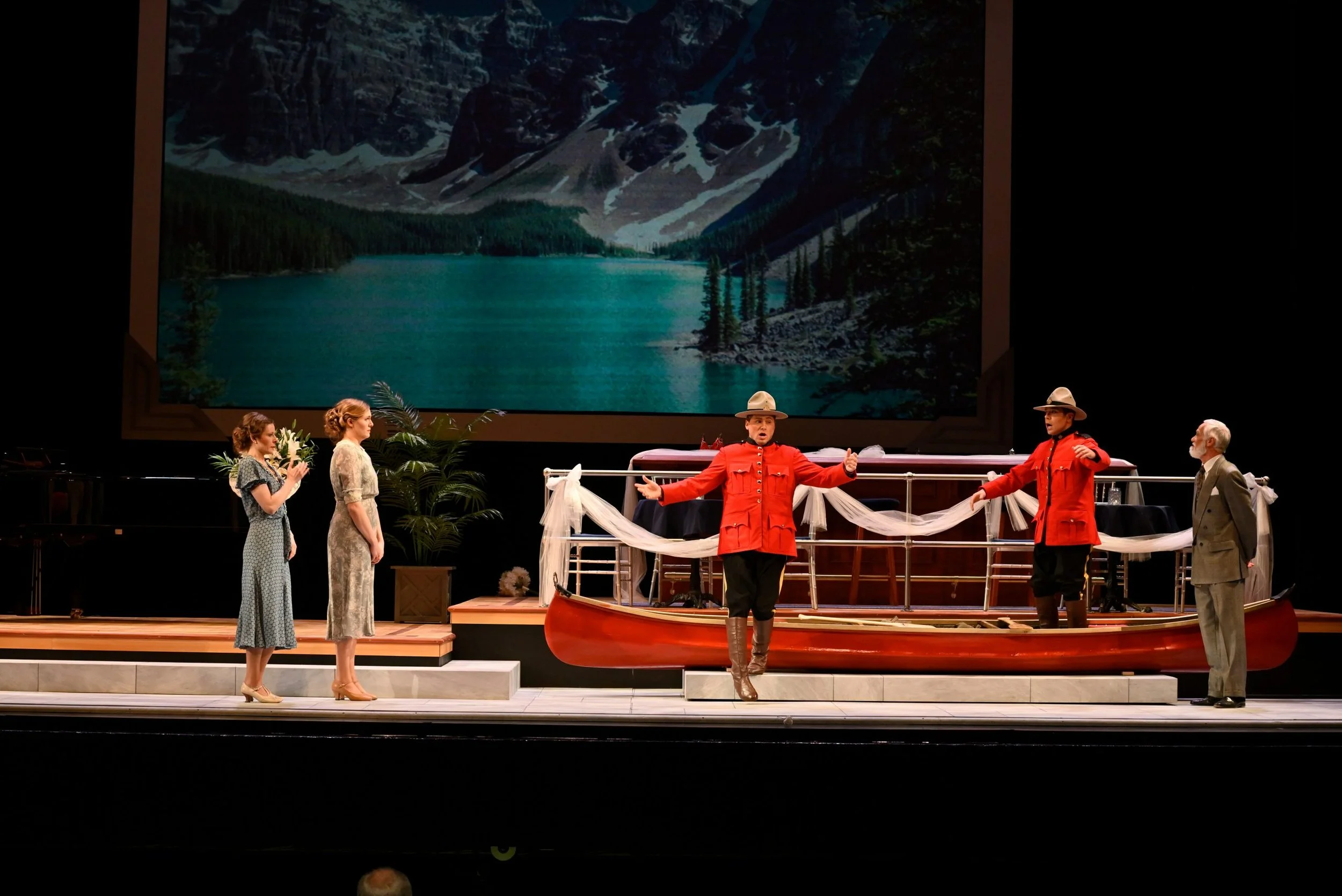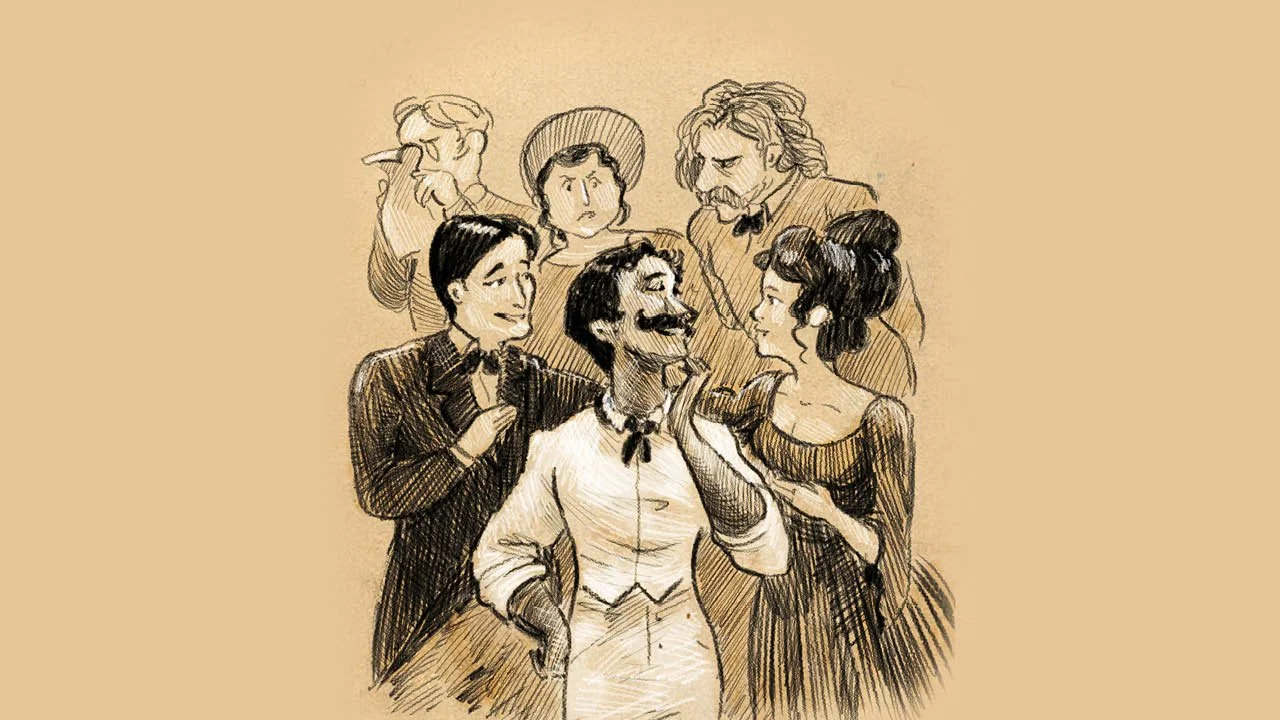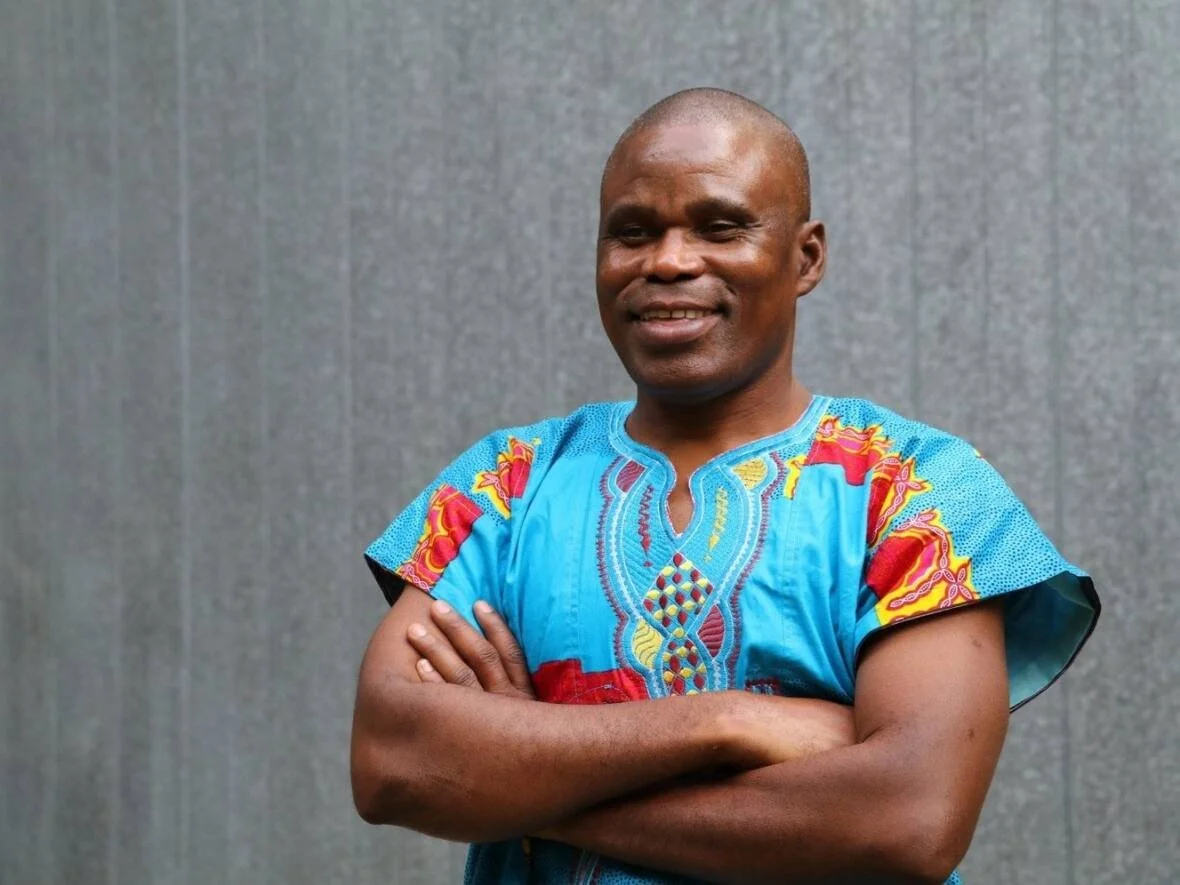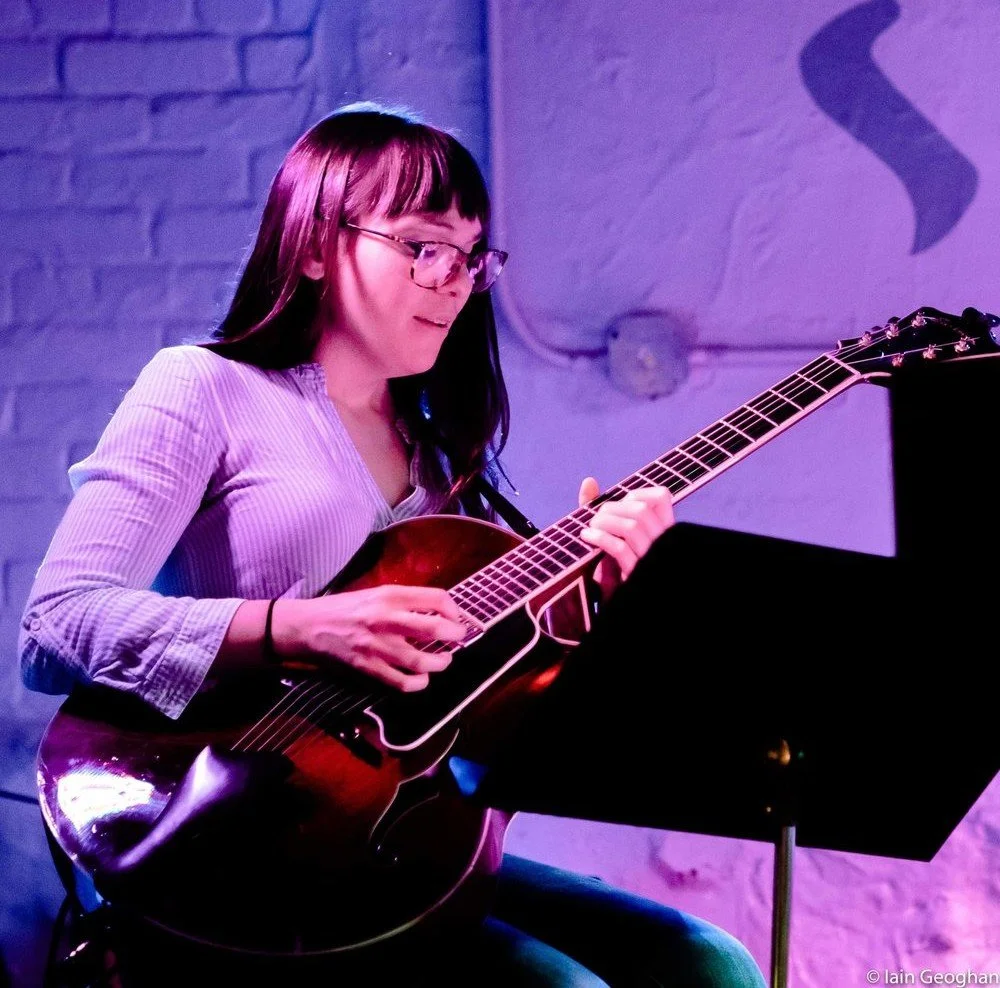Violinist-composer Brooklyn Wood brings a fresh new voice to Music on Main's Kessler Academy
Promising talent isn’t daunted by a post-pandemic program of giants like Bartok and Stravinsky
Seventeen-year-old Kessler “veteran” Brooklyn Wood will premiere her pandemic-inspired composition “Celadon Waves”.
Music on Main, the Microcosmos Quartet, and the PuSh International Performing Arts Festival present the musicians of the Kessler Academy in concert at the Kessler Academy on August 14, 7:30 pm at the Vancouver Playhouse.
WHAT LINKS Béla Bartok, Paul Hindemith, and Igor Stravinsky, other than that they’re among the prime architects of modern composition?
Well, for the members of the Microcosmos Quartet—as well as the student performers that they’ll be inviting on-stage for the Kessler Academy’s annual concert—they’re also survivors.
All three lived through conflict, pestilence, revolution, and exile, and yet their creative output didn’t dim or flicker despite their tumultuous lives. This makes their music strangely appropriate for our own unsettled era, and in the Academy’s upcoming, socially distanced return to live concertizing it’ll be fascinating to piece together how history permeates Bartok’s Divertimento for String Orchestra, from 1939, Stravinsky’s Concerto in D, written in 1946, and Hindemith’s slightly earlier Five Pieces for String Orchestra, which made its debut in 1927.
A past installment of the Kessler Academy’s annual gathering.
“There was a really clear intention in choosing this music,” says producer Dave Pay, whose Music on Main organization is partnering with the Kessler Academy and the PuSh International Performing Arts Festival to bring this music to the Playhouse Theatre stage. “And that was to take this extra-programmatic element and show young musicians how music functions and how musicians function during trying times—and what can be created coming out of those trying times.
“Having been through the [COVID-19] pandemic for the whole year,” he continues, the Kessler mentors in the Microcosmos Quartet “chose repertoire created by these giant composers that kind of shows the story of what it is to respond, musically, to trauma and pandemic and war—and to show that you do come out the other side of it.”
Further meditations on music, resilience, and renewal will be offered by the fourth composer on the Kessler bill. And if you haven’t yet heard of Brooklyn Wood, don’t worry: you’re not alone.
Wood, it turns out, is one of the student participants in the Kessler summer camp—a veteran, in fact, having attended and performed in several earlier iterations of the annual program. Nonetheless, she’s only 17 and still in high school, although her home institution is the acclaimed Langley Fine Arts School. There, she’s studying violin, composition, and jazz—and starting to attract the attention of savvy elders like Pay and the Microcosmos Quartet’s first violinist, Marc Destrubé.
“She’s just a super-great egg,” says the effusive Pay, who compares Wood’s innate musicality to that of singer, violinist, composer and former Music on Main artist in residence Caroline Shaw. “She’s a great player, and she has a really great string quartet as well. Marc heard a composition of hers and thought it was a great piece. It was a piece for cello and violin that was so well written and beautiful that we’re really excited that we’re able to make this commission happen for her, and for Microcosmos, and for the Kessler. She’s a really, really cool kid.”
Naturally, Wood admits to being “a little bit intimidated” by making her public debut as a composer on a bill with three of the all-time greats. But she also sounds happily excited by the prospect, and not at all daunted by the task of turning her own pandemic experience into music.
Celadon Waves, she explains, was inspired by Ellen S. Jaffe’s poem “China Beach”, which in turn celebrates the balm that wilderness and the ocean can bring to a storm-tossed brain.
“I found her poetry earlier this year, and I just loved it,” Wood explains in a separate telephone interview. “I thought the writing was just really beautiful. It’s very deep, and it resonated with me, so my interpretation of the poem is of someone reflecting on the difference between two world-wide society-disrupting events and the peace and safety of their own home. And it kind of coincided with Covid, because I had a lot of time to reflect on our society as a whole.”
Jaffe left the United States for Canada in 1979, at a time when her native country was still reeling from its ill-considered intervention in Vietnam. “China Beach”, written during the Kosovo War, contemplates both the “smokey green” waves of the Pacific Ocean as they crash on the Vancouver Island shore, and the “undigested hate” of battle. Wood suggests that her musical interpretation of Jaffe’s text incorporates both poles, but leans more towards the natural world than the unnatural one of man-made munitions.
“I kind of wrote it like a story,” she explains. “It’s very melodic, and I wanted it to kind of make the listener feel like they’re on a beach. There’s a rocking pattern that’s supposed to be the waves, and that kind of builds up until, in the middle, it breaks and there’s tension, and then it fades away—just like the poem.”
What won’t fade away, one suspects, will be the first impression this emerging composer’s music will leave on her listeners, and the gratitude Wood feels for having such inspiring mentors.
“What I like most about Kessler is that we get to perform and create with other musicians, while promoting the importance of modern and 20th-century composition,” she notes. “As a composer and a performer, I think it’s really important to play more modern repertoire. Kessler works very hard at trying to preserve and promote the importance of playing music that’s written today, which is an amazing thing.”


